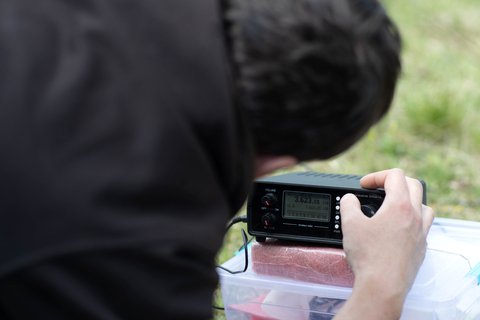This post was originally published on February 20, 2024
The latest update to this post was made 1 month ago.
 Amateur Radio Licensing And Regulations
Amateur Radio Licensing And Regulations
Amateur radio, also known as ham radio, offers a world of opportunity for communication, experimentation, and community engagement. However, before diving into this exciting world, it’s essential to understand the licensing process, regulations, and operating guidelines that govern the hobby. In this article, we’ll provide a guide to amateur radio licensing and regulations, covering the licensing process, FCC regulations in the United States, and operating guidelines applicable to amateur radio operators worldwide.
Understanding The Licensing Process
In most countries, including the United States, amateur radio operators are required to obtain a license from the relevant regulatory authority before transmitting on the airwaves. The licensing process typically involves passing an examination covering basic radio theory, regulations, and operating procedures. Study materials and practice exams are available to help candidates prepare for the exam, which may vary in difficulty depending on the level of license sought (e.g., Technician, General, Extra in the U.S.). [Free Practice Tests]
FCC Regulations (United States)
In the United States, amateur radio operations are regulated by the Federal Communications Commission (FCC). The FCC sets forth rules and regulations governing amateur radio operations, including frequency allocations, operating privileges, and station identification requirements. Some key regulations enforced by the FCC include:
- Part 97 Rules: Part 97 of the FCC’s regulations contains the rules governing amateur radio service. These rules cover a wide range of topics, including station operation, frequency usage, call sign assignment, and emergency communication procedures. [Learn More]
- Frequency Allocations: The FCC allocates specific frequency bands for amateur radio use, ranging from HF (high frequency) bands for long-distance communication to VHF/UHF (very high frequency/ultra-high frequency) bands for local and regional communication. [Full Spectrum List] [Ham Radio Specific]
- Station Identification: Amateur radio operators are required to identify their stations at regular intervals during transmissions using their assigned call signs. This helps ensure proper identification and accountability on the airwaves.
- Operating Privileges: The FCC grants different operating privileges to amateur radio operators based on their license class (e.g., Technician, General, Extra). These privileges determine the frequency bands, modes, and power levels that operators are allowed to use. [Learn More] or [Find A Testing Center]
Operating Guidelines For Amateur Radio Operators
In addition to regulatory requirements, amateur radio operators are expected to adhere to certain operating guidelines and best practices to ensure responsible and courteous operation on the airwaves. Some key operating guidelines include:
- Follow Band Plans: Familiarize yourself with band plans that designate specific frequency segments for different modes of operation (e.g., CW, SSB, digital) and types of activity (e.g., DXing, contesting, emergency communication).
- Be Respectful: Treat fellow operators with respect and courtesy on the airwaves. Avoid interfering with ongoing conversations, use appropriate language, and refrain from engaging in disruptive behavior.
- Practice Good Operating Practices: Follow established operating procedures, such as listening before transmitting (to avoid interfering with ongoing conversations), using the minimum power necessary to establish communication, and avoiding excessive bandwidth usage.
- Participate in Emergency Communication: Amateur radio operators play a vital role in emergency communication during disasters and other emergencies. Be prepared to assist with emergency communication efforts as needed, following established protocols and procedures.
Embracing The Responsibilities Of Amateur Radio
Amateur radio licensing and regulations are designed to ensure responsible and accountable operation on the airwaves. By understanding the licensing process, FCC regulations in the United States, and operating guidelines applicable to amateur radio operators worldwide, you can enjoy the hobby while upholding its values of service, camaraderie, and public benefit. Whether you’re a newcomer to the hobby or a seasoned operator, embracing these responsibilities is essential for fostering a vibrant and thriving amateur radio community.
Tags: #hamradio #amateurradio #radioamateur #hamencounters
![]()

Be the first to comment